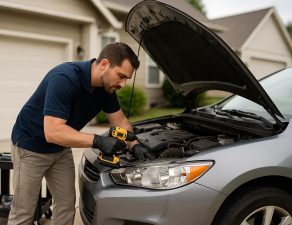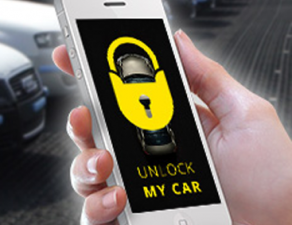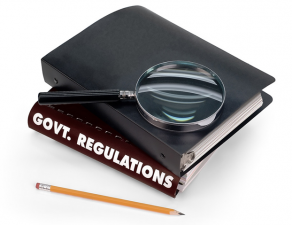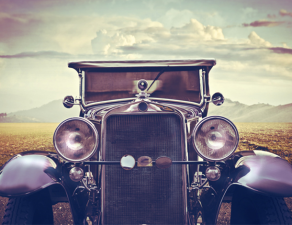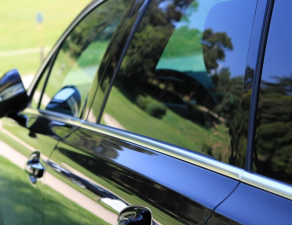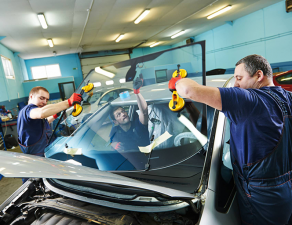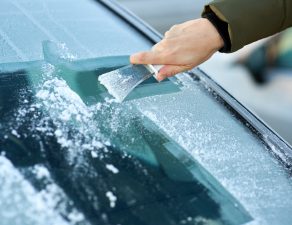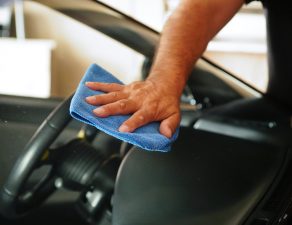Now that it’s winter and it seems to get dark by the time lunchtime is over, you’d rather stay curled up under a warm blanket with a mug of hot cocoa. But until a long-lost uncle bequeaths you a fortune big enough to fund your snowbird lifestyle, you still have to leave the house to go to work, visit friends and family, or do those errands that don’t have home delivery. Rather than be surprised, yet again, for winter travel mishaps and breakdowns, here are six things you must have in your car during the winter season:
Instantly Get Up to 3 Local Windshield Replacement Quotes
1. Means of Communication
Consumer Reports says that the number one thing you should have in your car at all times is a fully-charged cell phone, as well as the means of charging it when the batteries die (and why are we still surprised when they do?). If you’re stranded or there’s been an accident, calling for help quickly could save a life—or at the very least get you to your party on time. Popular Mechanics recommends that you keep a hand-cranked or solar charger on hand in case you can’t recharge from your car’s battery.
In addition to being able to call for help, Lifehacker recommends keeping an LED emergency beacon in your car. Flares, a reflective emergency flag or triangle, and a whistle are also great ideas—no, not for a disco party, but to keep you safe and round out your options of alerting others to road hazards. Wisconsin safety officials also suggest stashing an AM/FM/weather band radio and flashlight in the car. And don’t forget to bring extra batteries for these items and store them separately so that they won’t already be drained when you need them.
2. Jumper Cables
Speaking of batteries, these suckers have a habit of dying in cold weather, so Ready.gov urges all motorists to carry a set of jumper cables. And, by the way, if you don’t know how to use them, they’re about as good as a recreational jump rope. Lifehacker has a simple guide on how to jump start your car, which you should learn, if for no other reason than to show off to your friends. And considering that few people know how to properly jump a car, knowing this skill could also be of help to other stranded motorists.
3. Ways to Stay Warm and Dry
The cold can be dangerous if you are stranded in a remote area or stuck in a major traffic pile-up during a blizzard. During the winter months, you should always have ways to stay warm in your car in the event of a break-down, especially if you’re traveling solo or your car-mate has intimacy issues. The winter-hardy folks in Wisconsin recommend carrying the following items to keep you and your travel companions nice and toasty while you wait for help:
- Extra blankets or sleeping bags (Mylar reflective ones conserve both space and heat if you don’t have a lot of storage room in your car)
- Extra hats, gloves, scarves, socks, and sturdy boots
- Air-activated hand warmers
4. Sustenance
Every good winter emergency kit for the car should be stocked with enough food and water to get you through a day or two. You never know when you’ll find yourself stranded on the roadside or hungry after a bad dinner date. Allstate recommends:
- Bottled water or sports energy drinks, as dehydration is just as dangerous in the winter as it is in the summer
- Foil packets of nuts or nut butters
- Jerky
- Dried fruit
- Foil packets of tuna
- Dry cereal and/or whole-grain crackers
- Trail mix (and the best part is you can include chocolate since it won’t melt in the cold like it does during the summer!)
- And if you are traveling with baby, make sure to pack extra formula
In short, store plenty of quick-access, preparation-free, high-energy, high-nutrient emergency foods and drinks so that you’ll be able to get through until help arrives.
5. First Aid Kit
Let’s face it—no matter what time of year you’re traveling, a first aid kit is absolutely essential. But in winter, when waiting for help to arrive can be complicated by subzero temperatures, it’s even more necessary. The American Red Cross offers a comprehensive list of things you should have in your travel first aid kit, such as a variety of bandages, antiseptic ointments, cold compresses, and even aspirin. You should routinely check your kit once a month to make sure no items are damaged or expired.
6. Escaping Poor Traction Problems
Winter is slippery, icy, slushy, snowy, wet and difficult to get a good grip on—oh how we love this season! If you find yourself nose first in your neighbor’s moat, caught in a snowdrift, or spinning around on a patch of black ice, you’ll need these things to help you get out:
- Rope, paracord and/or tow cable
- A tough, but foldable camp or army shovel
- A bag or two of kitty litter, rock salt or sand
And if you live in a place where it often snows and the roads are frequently impassable, you may be required to carry tire chains in your car. Check with your local department of transportation or police station to get requirements specific to your area.
The Boy Scout motto is a good one for everybody, not just for fifth-grade lads: always be prepared! So before you jump into your car for that long-anticipated ski trip, make sure you have these six essentials in your car so that your vacation doesn’t turn into a cautionary tale for others.
